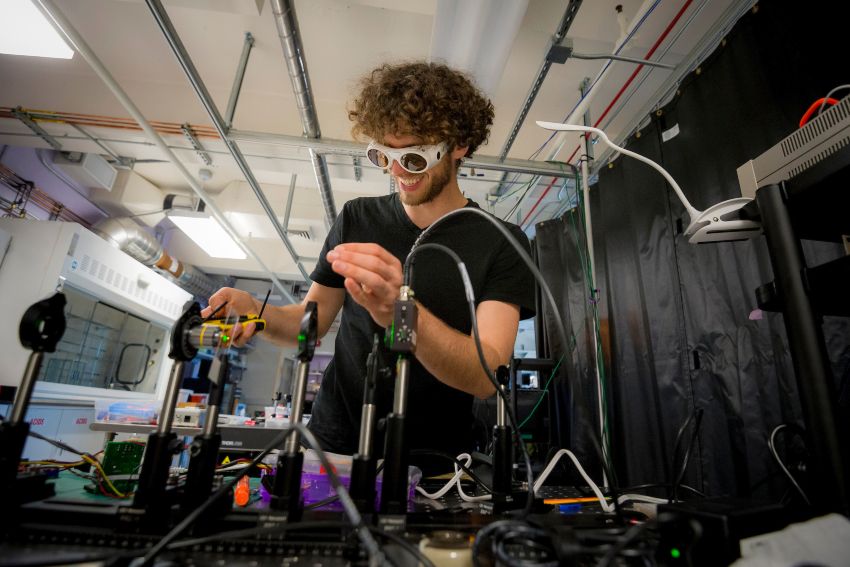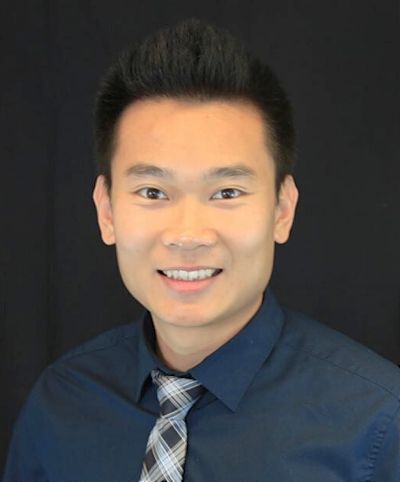28 February 2022
New Course to Help High School Students Flex Their Problem-Solving Skills

Consider this: a team of engineers is challenged to develop a means of detecting pollution in ocean water. They devise high-tech ideas for remote nano-sensors, debating the mechanisms of collecting and testing water samples at varying ocean depths.
Into the lab walks a marine biologist with a bag of clams. These mollusks are very sensitive to polluted water, so they shut their shells when anything harmful enters their environment. Essentially, they can act as canaries in the coalmine. Detecting ocean pollution could be as simple as setting up a webcam to watch clams “clam up.”
The solution wasn’t an intricate microchip design. Instead, it was a matter of using practical knowledge to address a complex problem.
“Many solutions seem obvious after the fact,” said Jacobs School of Engineering professor Curt Schurgers. “With some problem-solving experience, we can come up with extraordinary solutions by addressing problems in a systematic way.”
 UC San Diego Extension and UC San Diego’s Jacobs School of Engineering are offering a new course to help high school students develop critical thinking skills that produce clever solutions. “Problem-Solve like an Expert,” taught by Jacobs School of Engineering lecturer Dr. Alex Phan (pictured), will put students into real-world scenarios to stretch their problem-solving minds in new ways.
UC San Diego Extension and UC San Diego’s Jacobs School of Engineering are offering a new course to help high school students develop critical thinking skills that produce clever solutions. “Problem-Solve like an Expert,” taught by Jacobs School of Engineering lecturer Dr. Alex Phan (pictured), will put students into real-world scenarios to stretch their problem-solving minds in new ways.
Using clams as pollution detectors is just one example Phan hopes will inspire students to think differently.
“There’s no secret recipe that can help you get better at problem-solving overnight,” Phan said. “These are skills acquired with experience. By teaching engineering strategies to solve everyday problems, we can set them on the right path.”
While the course will be taught from an engineering vantage, high school students needn’t be future engineers to apply. In fact, Phan and Schurgers would prefer the class of 20 to 30 students to represent a range of perspectives and prospective technical career paths.
Through lectures and hands-on group projects, students will identify problems, weigh potential remedies, and work through ideas for implementation.
The course is part of a larger university initiative to expand the region’s engineering and technical workforce. With a $1.6 million, three-year pledge from a local philanthropist in 2020, UC San Diego’s Jacobs School of Engineering and UC San Diego Extension have been working to enrich the problem-solving skills of San Diego’s K-12 students.
The goal: cultivate more high school graduates who understand universal engineering principles they can take to future academic and professional endeavors.
Professor Schurgers, who advises on the initiative, said engineers are often sought-after employees for their methodic approach to problem-solving. They can apply these skills to a broad range of technical and non-technical problems, he said.
“It’s not just about knowing how to use specific tools. It’s being able to use whatever you have in your toolbox,” Schurgers said.
He likens the skillset to television’s fictional hero MacGyver escaping from a room with a paperclip and a rubber band. Like MacGyver, students can learn to apply problem-solving strategies to any mission regardless of technical expertise.
To learn more or enroll, visit the partnership website.